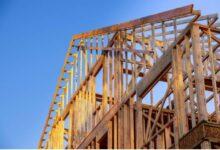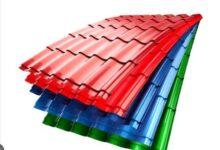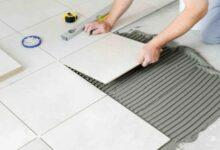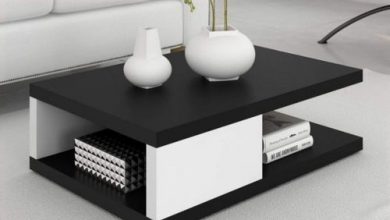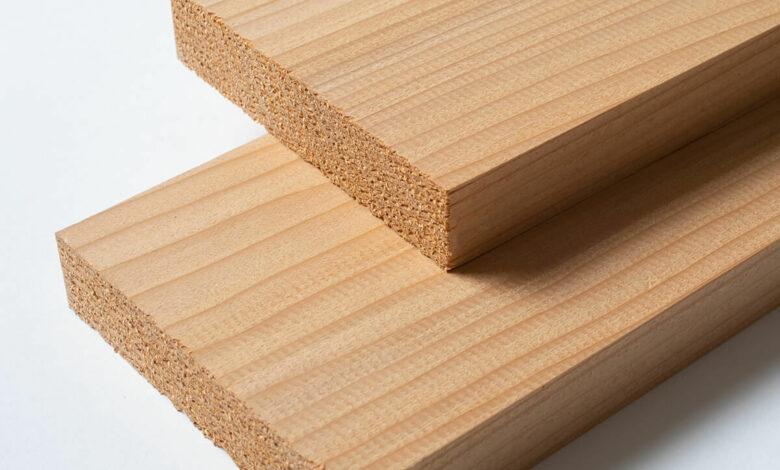
Top 15 Weather-Resistant Wood for Roofs in Nigeria
Weather-Resistant Wood for Roofs in Nigeria – Nigeria’s tropical climate with heavy monsoon rains demands weather-resistant roofing materials. While metal sheets dominate modern roofs, timber remains a traditional roofing material, especially in rural regions. Certain indigenous wood species and imported woods have natural properties that make them suitable for durable roof construction in wet conditions.Information Guide Nigeria
When selecting weather-resistant woods in Nigeria, aspects like density, natural oils, texture, rot resistance and water-repellency must be considered. Information Guide Nigeria
👉 Relocate to Canada Today!
Live, Study and Work in Canada. No Payment is Required! Hurry Now click here to Apply >> Immigrate to CanadaRead Also: 15 Best Nigerian House Designs
The Top 15 Weather-resistant wood for roofs in Nigeria Are:
1. Cedar
First and foremost, cedar is a prolific roofing wood valued for its natural weather resistance. The aromatic red cedar contains oils that act as natural water repellents. This prevents moisture infiltration into the wood over time. Moreover, cedar shows stability in changing moisture conditions. However, cedar requires additional coatings for long-term durability in tropical climates. Weather-Resistant Wood for Roofs
2. Iroko
In addition, iroko is one of the most popular weather-resistant timbers traditionally used for roof trusses and shingles in Nigeria. The dense, oily wood readily sheds water with minimal absorption. Moreover, iroko resists decay and damage from rain, sun, and wind. However, quality large planks are increasingly scarce due to overexploitation.
3. Mahogany
Furthermore, Nigerian mahogany has natural water-repellent properties that make it suitable for exterior roofing applications. The fine, straight grain enables the smooth runoff of rainwater. In addition, mahogany shows some resistance to swelling and shrinking when damp. However, large high-quality mahogany trees are increasingly hard to find.
Read Also: Top 15 Traditional Roofing Wood in Nigeria
4. Teak
Moreover, imported teak is highly valued for its weather endurance qualities. The oily wood prevents water penetration while the dense grain minimizes swelling. Teak also displays longevity when exposed to outdoor elements. However, quality teak is expensive and requires maintenance to enhance longevity. 15 Best Black Coffee in Nigeria
5. Oak
Additionally, dense, heavy oak wood makes durable roof shingles and shakes that shed water well. The high tannin content boosts weather resistance. However, oak is prone to moisture-induced warping and splitting. The wood needs additional protective treatments in wet tropical climates.
6. Acacia
Also, acacia is moderately durable hardwood suitable for roof trusses in wet areas. The dense grain repels water while the wood resists swelling and shrinking when damp. However, acacia requires appropriate installation, ventilation and coatings to prevent moisture damage long-term. 50 Best Online MBA Programs
👉 Relocate to Canada Today!
Live, Study and Work in Canada. No Payment is Required! Hurry Now click here to Apply >> Immigrate to Canada7. Gmelina
In addition, fast-growing gmelina produces reasonably durable timber for roofing in humid conditions. The wood’s natural oils provide fair water resistance. Moreover, gmelina displays stability in changing moisture levels outdoors. However, gmelina has only moderate rot resistance so needs preservative treatments.
Read Also: Top 15 Local Wood Types for Roofing in Nigeria
8. Ipswich Pine
Furthermore, imported ipswich pine makes resilient, long-lasting roof covering in wet climates. The dense grain structure sheds water effectively while the oils boost repellency. Ipswich pine also resists swelling and warping when periodically wet. However, exposed end grains need additional sealing. NYSC Portal
9. Meranti
Moreover, Southeast Asian meranti is valued for its weather-endurance qualities like stability, density and water-repellency. The timber makes durable roof shingles and cladding in humid conditions. However, meranti requires proper installation, ventilation and maintenance to maximize longevity.
10. Pine
Additionally, pine wood contains high amounts of resin that act as natural water repellents. The resin-rich grain enables good water runoff from periodic rain. Moreover, pine shows reasonable stability when exposed to outdoor moisture and humidity. However, pine is prone to cracking and splitting over time. JAMB Portal
11. Spruce
Also, spruce is a commercially important softwood used for roof boards and shingles. Although porous, spruce resists moisture infiltration when properly seasoned and installed. The lightweight wood also displays stability in frequently wet conditions. However, spruce lacks natural durability and needs additional protective treatments.
Read Also: Top 15 Roof Construction Materials in Nigeria
12. Walnut
In addition, African walnut contains high levels of natural oils that protect it against moisture damage. The dark-colored wood repels water well, preventing leaks from heavy rains. In addition, African walnut displays minimal swelling when damp. However, large defect-free planks are increasingly scarce and costly. JAMB Result
13. Osage Orange
Furthermore, dense, hardy osage orange makes very durable water-resistant roof shingles. The yellow-orange wood contains tyloses that prevent moisture penetration. However, despite stability when wet, osage orange can slowly deteriorate from recurring moisture exposure. 200 romantic love message for her
14. Lignum Vitae
Moreover, lignum vitae is the densest, oiliest natural wood, giving excellent moisture resistance. The fats and resins in lignum vitae result in water beading and shedding from the surface. However, lignum vitae is extremely scarce and challenging to source. 105 good morning messages
15. Ebony
Finally, ebony is a prestigious roofing wood due to its density and natural oils that prevent water infiltration. The wood maintains stability in wet conditions with minimal expansion. However, ebony is relatively rare and prohibitively expensive for extensive roof usage.
Read Also: Top 15 Traditional Architectures in Nigeria
Conclusion
In summary, certain indigenous and imported timber types like iroko, teak, cedar and pine have natural properties that make them suitable for weather-resistant roofing in Nigeria’s rainy climate. Adequate protective treatments and installation measures maximize durability. However, overexploitation threatens the sustainable supply of the high-quality woods.
Check JAMB RESULT
Check and Confirm: How much is Dollar to Naira
